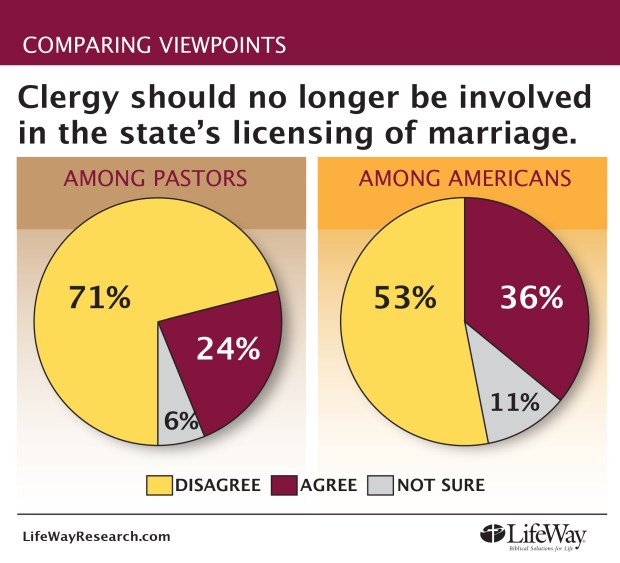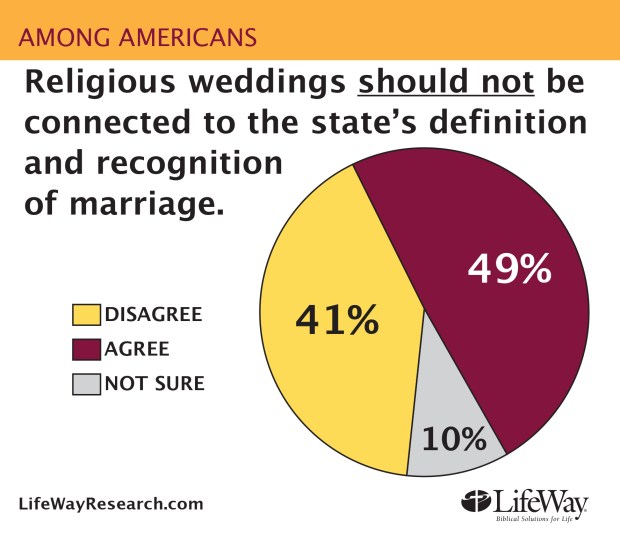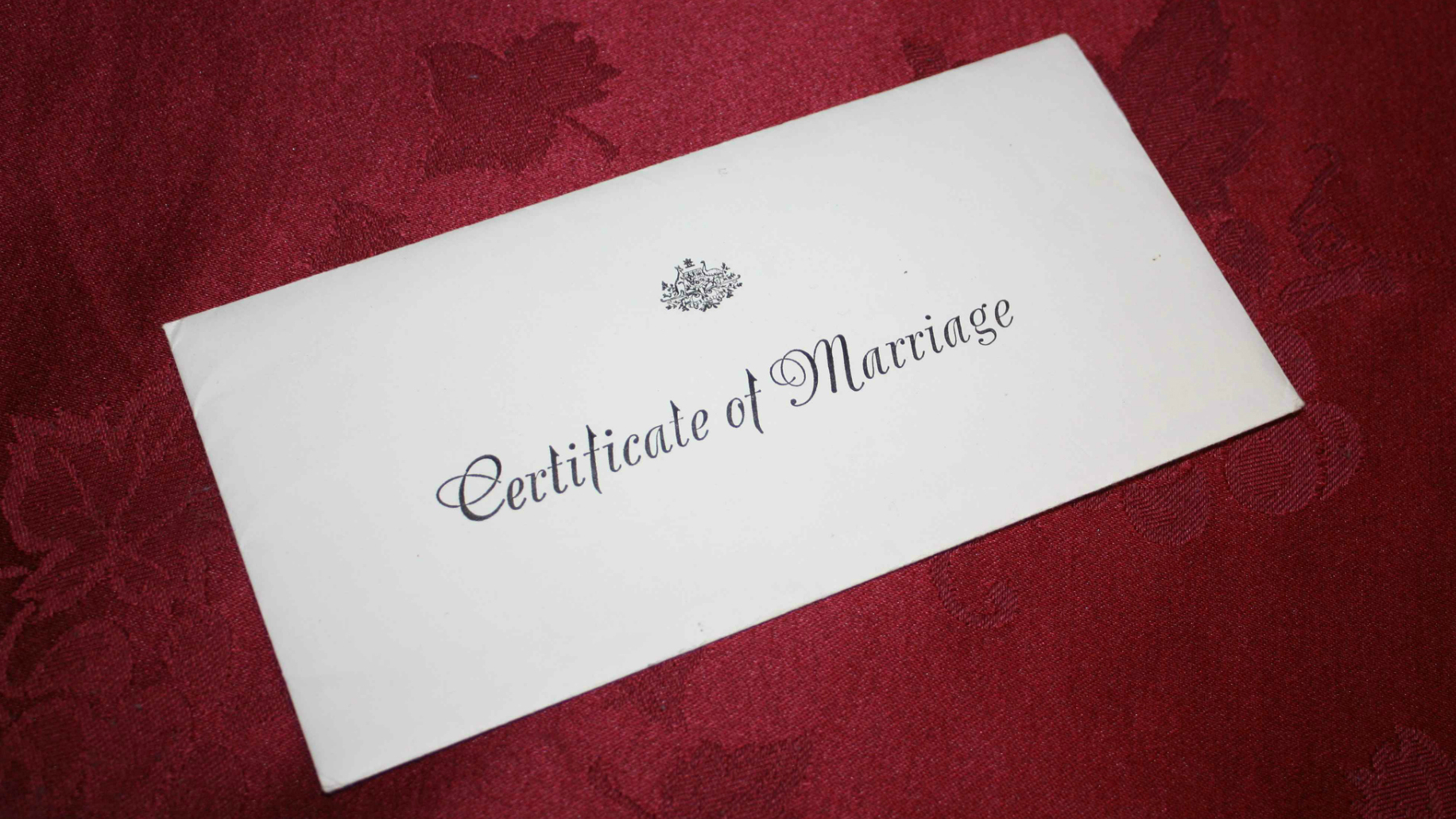Should pastors stop signing marriage certificates at the weddings they officiate? In response to same-sex marriage, should churches get out of the wedding business?
A prominent conservative Christian magazine, First Things, thinks so. As do the more than 300 pastors and laypersons who have signed a pledge to "no longer serve as agents of the state in marriage."
The pledge argues for a voluntary withdrawal from the civil side of marriage as same-sex marriage increasingly becomes the law of the land. Wycliffe College's Ephraim Radner and Christopher Seitz, who drafted the pledge, write, "To continue with church practices that intertwine government marriage with Christian marriage will implicate the Church in a false definition of marriage."
The petition asks pastors to pledge to:
- "no longer sign government-provided marriage certificates"
- "ask couples to seek civil marriage separately from their church-related vows and blessings"
- "preside only at those weddings that seek to establish a Christian marriage in accord with the principles articulated and lived out from the beginning of the Church’s life"
"It's time make a clear distinction between the government-enforced legal regime of marriage and the biblical covenant of marriage," argues R. R. Reno, editor of First Things, in presenting the pledge. "For a long time Christianity has sewn its teachings into the fabric of Western culture. That was a good thing," he noted. "But the season of sewing is ending. Now is a time for rending, not for the sake of disengaging from culture or retreating from the public square, but so that our salt does not lose its savor."
Reno defends the pledge from critics like Doug Wilson who see it as a "retreat" from the same-sex marriage debate. Radner further explains the rationale. The Ethics and Religious Liberty Commission's Russell Moore argues it is too soon for such a step, as does the Colson Center’s John Stonestreet. The Anglican Church in North America has asked its pastors to stop signing the pledge until it can be studied. The Gospel Coalition’s Trevin Wax explores why pastors and thinkers divide over the issue, including likely C. S. Lewis and J. R. R. Tolkien.
Just how widespread might the debate be? According to a LifeWay Research poll released today, 1 in 4 Protestant pastors agree it's time to rend civil and religious marriage. So do 1 in 3 Americans in general.

“In many countries, there’s a split between civil marriage and religious marriage," noted LifeWay's Ed Stetzer. "In the United States, those two aspects have been combined. That’s led to some tension, as American views about marriage change."
American pastors are split over the issue, with 24 percent of them saying clergy should no longer be involved in the state's licensing of marriages, and 71 percent saying they should stay involved. Pastors of small churches with fewer than 50 congregants were most likely to say clergy should no longer be involved, and evangelical pastors were slightly more likely than mainline pastors to say clergy should remain involved (77 percent vs. 69 percent).
Meanwhile, half of Americans are ready to separate religious weddings from the government's definition and recognition of marriage.

Evangelicals are less likely than others to agree that religious weddings should not be connected to the state’s recognition of marriage (44 percent vs. 52 percent). They are also slightly less likely to disagree with the statement “marriage should be defined and regulated by the state” (55 percent vs. 60 percent).
The findings surprised Stetzer. “It’s the size of the minority view, among pastors and Americans, that surprises me—a noteworthy number are ready for pastors to stop saying, ‘By the power vested in me by the state…’ during a church wedding,” he said. “We don’t know if the view is growing, but it certainly is worth noticing.”
LifeWay asked 2,000 Americans and 1,000 Protestant senior pastors about their views on civil and religious marriage in surveys conducted September 11 to October 5, 2014.
In April, First Things asked eight scholars to weigh in on whether churches should get out of the marriage business. It also offers a legal perspective on the pledge.
CT has previously written about marriage and same-sex marriage, including evangelicals’ favorite same-sex marriage law.
[Image courtesy of Jan Smith – Flickr]











